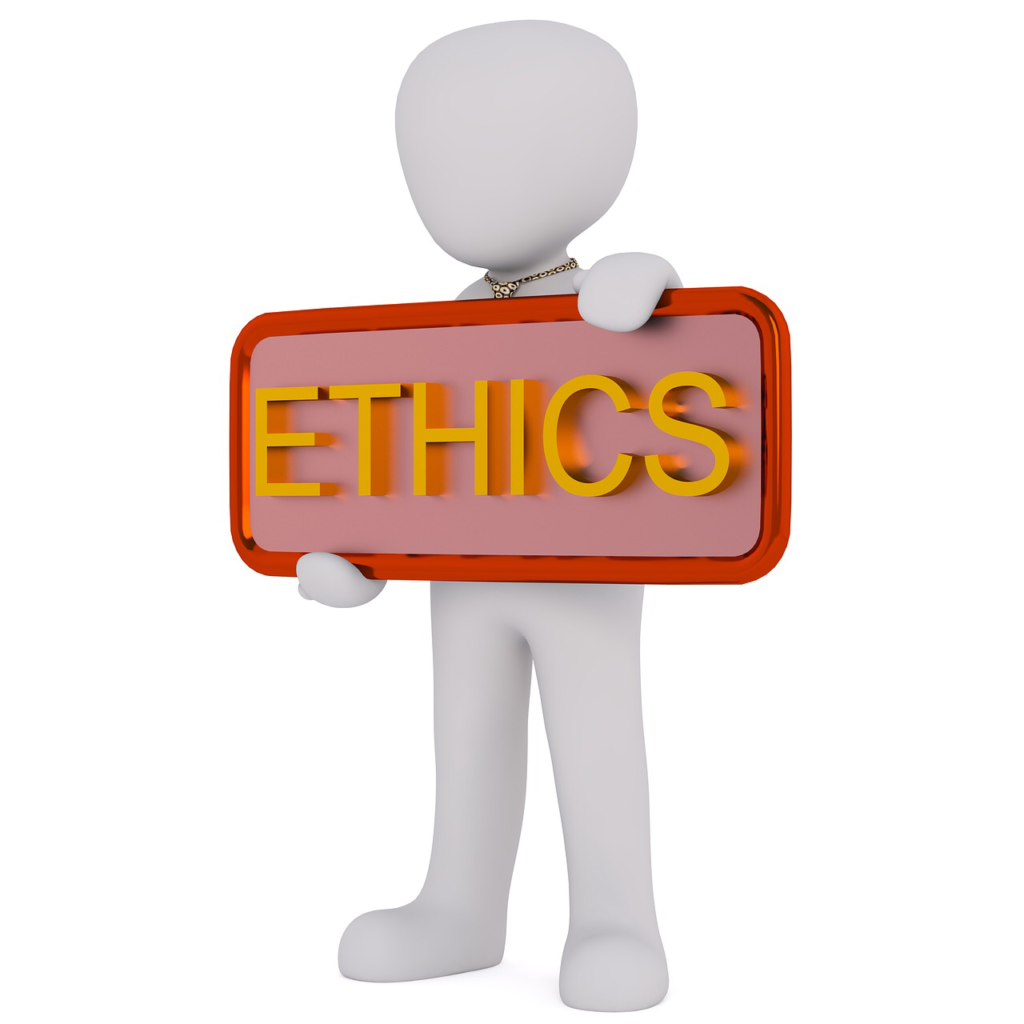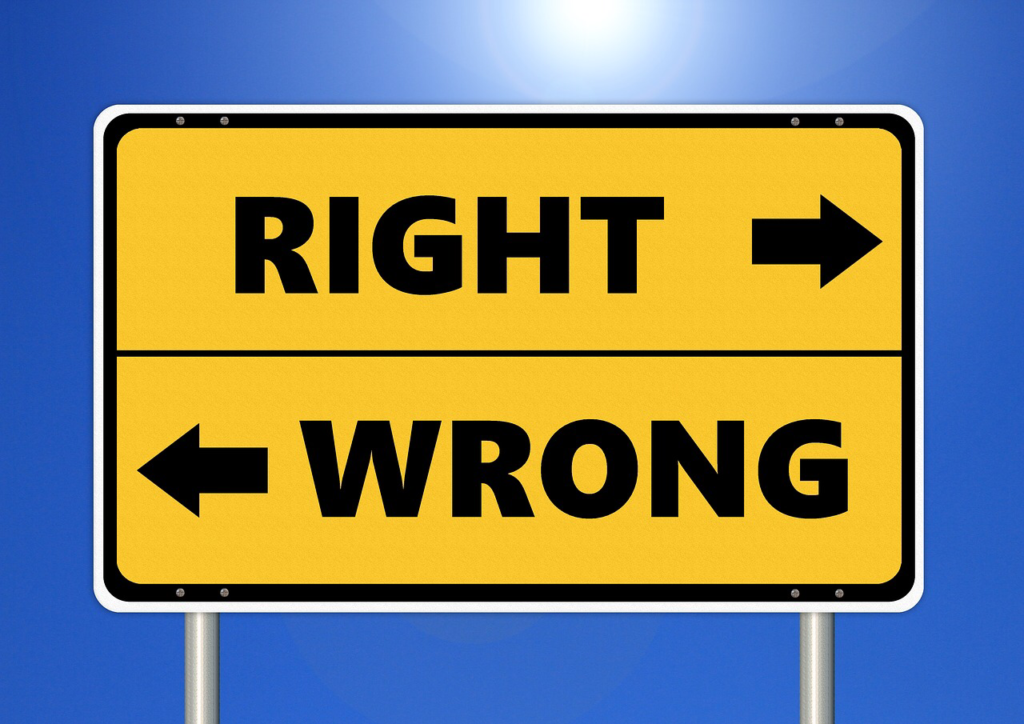When working with people with Dementia and their families and caregivers, we may sometimes find ourselves in situations in which it is hard to decide what would be the right thing to do. Many ethical dilemmas can arise for those providing care for people living with Dementia.

The nature of Dementia sometimes leads families into situations of decision-making that they have never faced before. The most common questions revolve around whether to expose a person to their diagnosis and the prognosis of their condition. Later, as the disease progresses, you may ask whether it is ever okay to deceive a person with Dementia for “their own good”.
What is an ethical dilemma in healthcare?
By definition, an ethical dilemma involves the need to choose from among two or more morally acceptable options or between equally unacceptable courses of action, when one choice prevents selection of the other.
Providing good patient care and avoiding harm are the cornerstones of ethical practice. Healthcare workers want to do the right thing, but it isn’t always clear how they should proceed. Every situation is somewhat different, and ethical dilemmas can arise even when a healthcare facility has policies in place to address them.
To understand what ethic (dilemmas) really means we have to elaborate on the subject.

What is ethics?
The term “ethics” refers to standards which tell us how we ought to act in various situations and how we ought to live with one another. This is often framed in terms of rights, obligations, duties, benefits to society, fairness or specific virtues.
The standards of behavior are based on perceptions of right and wrong or good and bad.
Ethics is not just about big societal issues such as immigration, war, abortion or euthanasia which are discussed in the media.
Every day matters such as whether it is reasonable to ask for help, how to respect a person’s dignity, how to promote autonomy or what to do if a person repeatedly refuses to get washed also have an ethical dimension.
Such everyday matters can be stressful and be persistent and urgent. They cannot always be discussed in a detached manner as they hold direct implications for people who matter to us personally.
Response
How these issues are approached may have implications for the image we have of ourselves as a good or bad person (e.g. one might ask oneself, “was I fair, was that the decent thing to do, is my attitude to this person justifiable?”).
The right thing to do in response to an ethical dilemma will often be to “treat a person as a person”. There have been debates about the minimum criteria necessary to be considered as a person.
Arguments
Some philosophers argue that to be considered a person, someone should have self-awareness, including awareness of their past, be capable of making plans for the future, and be capable of deciding for themselves what they want to do. This has sometimes led to people questioning whether a person with very advanced Dementia is still a person.
Counter arguments have been put forward which criticize the emphasis on cognitive abilities and failure to give sufficient attention to the social and emotional aspects of being a person.
The statement that an ethical approach is often about treating a person as a person is based on the premise that a human being who has feelings, even if unable to express them or to exercise autonomy, is a person. It is important to consider also what ethics is not.

Feelings about right or wrong
According to Velasquez and colleagues, ethics is not simply about doing what feels right or abiding by culturally determined norms and it should not be equated with religion, science or following social conventions.
Sometimes, it feels uncomfortable to do what is right. On the other hand, somebody may have a good feeling about doing something and it may be in keeping with that person’s values, but it would be unethical. The fact that a lot of people do something or react in a certain way that does not make it right.
Whilst many religions strive for ethical behavior, they do not address all ethical issues and some religious teachings condone behavior which some people might consider unethical.
Laws and ethical dilemmas
Laws have ethical dilemmas with which caregivers and people with Dementia are confronted. Often these laws are used to enforce actions that afterward, and now with greater ethical awareness, are considered wrong. Laws can offer certain behavioral limits but do not determine how to act.
Legislation tells us nothing about what constitutes good care. Finally, science may help us understand human behavior but cannot tell us how people ought to behave.

What is right and wrong
When trying to decide what is right and wrong, we tend to rely on systems or structures of thoughts and belief that help us to reflect systematically and critically on human behavior. Such deliberations are usually based on normative perspectives (shared norms and understandings) of good and bad; we, therefore, rely on values which are socially defined.
Nevertheless, at the same time, we should be able to reflect critically and with compassion about what is right and wrong in a particular situation and draw our own conclusions. This may sometimes lead us to challenge the way that values are defined and interpreted within society.
For centuries philosophers have debated these issues and have developed a number of ethical standards based on a range of theories. From some of the main theories, the following criteria have been put forward to determine what would be a “good” or the “right” action or approach :
- that which results in the most pleasure and the least pain to those affected (utilitarian approach),
- that which best protects and respects the moral rights of those affected (rights-based approach),
- that which treats everyone equally or if unequally then fairly, based on a standard that is defensible (fairness approach),
- that which is defensible based on outcomes, which would maximize people’s happiness or welfare (consequentialist approach),
- that which contributes towards the good of the community (common good approach),
- that which is consistent with what a virtuous person would do (virtue approach),
- that which is in accordance with our duties as rational individuals living in interdependent societies (deontological approach).
Looking at the above list we might wonder which would be the best approach to adopt in a particular situation. Apart from the fact that even ethicists might disagree about this, the criteria also raise further questions. Some of these are: what is the best and the least bad for people, which moral rights should be protected, what makes a person virtuous, when is unequal treatment defensible and does the end always justify the means?

Ethical principles or values
Another approach to determining what is ethical is to consider ethical principles or values.
A person can be said to have behaved ethically if they have respected certain principles. A few decades ago a set of four principles was developed by Beauchamp and Childress, namely:
- respect for autonomy,
- beneficence (i.e. doing good),
- non-maleficence (i.e. avoiding doing harm) and
- justice/equity.
They were intended to serve as a framework to guide professional medical ethics but have since been applied in a wide range of contexts.
There are also other principles and values which are perhaps equally important in other contexts (e.g. in everyday interactions with other people, in relationships with friends and family, in social care, and in residential care settings) such as trustworthiness, honesty, integrity, compassion, well-being, confidentiality and respect for privacy, personhood and dignity.
In addition to the four widely recognized principles of medical ethics, it may, therefore, be helpful to reflect on a range of concepts.
Moving towards a more holistic approach to ethics
Reliance on principles and values also raises problems. It is still necessary to decide which values and principles should be respected or promoted. What if respecting one value or principle conflicts with respecting another? Are some more important than others?
Could it also be argued that we are just picking and choosing in the sense that we do whatever we want and find the moral theory, principle or value that suits us?
Moreover, we might ask whether it is right to rely on abstract principles in view of the complexity of human relationships and of people living with Dementia.

Living with Dementia
Ethical behavior in relation to caring for a person with Dementia and living with Dementia is more than a question of rights and duties. It cannot be merely reduced to a set of abstract principles. It is important to consider the experiences of people with Dementia and their caregivers and families which are embedded in the people’s everyday lives.
As the disease progresses, people with Dementia may become unable to make any decisions, and, in fact, unable to communicate with their loved ones and care providers. They often need placement in long-term residential care facilities. A variety of end-stage ethical issues emerges in this context.

In the following blog, I will discuss ethics in a bad news conversation through a case study.
When you need more information or tips don’t hesitate to contact us!
